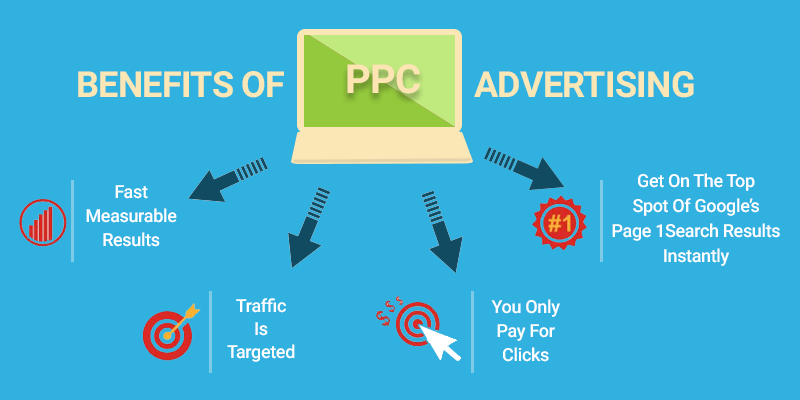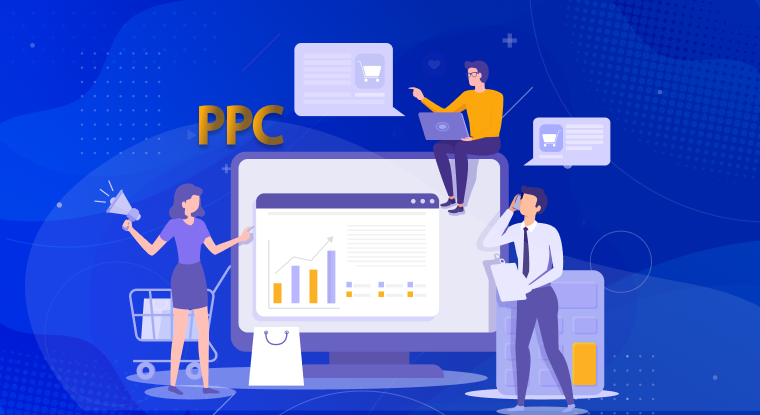
PPC, or Pay-Per-Click, is a digital marketing strategy that has revolutionized the way businesses promote their products and services online. In this comprehensive guide, we'll delve into the intricacies of PPC, exploring its definition, history, key components, benefits, challenges, best practices, and future trends.
Online advertisers that use the Pay-Per-Click (PPC) model of online advertising must pay a fee each time one of their ads is clicked. It's a way to purchase website views as opposed to obtaining them naturally through search engine optimization (SEO) or other techniques. PPC campaigns are usually administered using social media advertising networks like Facebook Ads and Twitter Ads, as well as platforms like Google Ads and Bing Ads.
Keywords: Keywords are the foundation of PPC advertising. Advertisers select relevant keywords that are likely to be used by their target audience when searching for products or services online.
Ad Copy: Ad copy is the text that appears in the PPC ads. It should be compelling, concise, and relevant to the user's search query, encouraging them to click on the ad.
Ad Extensions: Ad extensions are additional pieces of information that can be added to PPC ads to provide more context and encourage clicks. Examples of ad extensions include site links, callouts, location information, and call buttons.
Bidding: The process of determining the highest price an advertiser is ready to pay for a click on their advertisement is called bidding. Real-time auctions pit advertisers against one another, with the placement of ads decided by elements such as bid amount, ad relevance, and ad quality.
Quality Score: Quality Score is a metric used by search engines to evaluate the relevance and quality of PPC ads. It takes into account factors like click-through rate (CTR), ad relevance, and landing page experience. A higher Quality Score can lead to lower costs and better ad placements.
Landing Pages: The websites that consumers are sent to after clicking on a PPC advertisement are known as landing pages. They ought to offer a flawless user experience and be conversion-optimized.

Immediate Results: PPC advertising allows businesses to drive targeted traffic to their website immediately, unlike SEO, which can take time to see results.
Targeted Advertising: PPC platforms offer advanced targeting options, allowing advertisers to reach specific audiences based on factors like location, demographics, interests, and behavior.
Measurable ROI: PPC campaigns are highly measurable, with robust tracking and reporting capabilities that allow advertisers to track conversions, measure ROI, and optimize campaign performance.
Control and Flexibility: PPC advertising provides advertisers with full control over their campaigns, including budget, targeting, bidding, and ad creatives. This flexibility allows for quick adjustments to optimize campaign performance.
Brand Visibility: PPC ads appear at the top of search engine results pages (SERPs) and on relevant websites, increasing brand visibility and awareness among target audiences.

Competition: The popularity of PPC advertising has led to increased competition, driving up the cost of keywords and making it challenging for smaller businesses to compete effectively.
Complexity: Managing PPC campaigns can be complex, requiring expertise in keyword research, ad copywriting, bidding strategies, and campaign optimization.
Budget Management: PPC campaigns require careful budget management to ensure that advertisers are maximizing their return on investment (ROI) while staying within their budget constraints.
Ad Fatigue: Over time, users may become immune to seeing the same ads repeatedly, leading to ad fatigue and declining click-through rates.
Click Fraud: Click fraud, where clicks on PPC ads are generated artificially to drain advertisers' budgets, remains a concern in the PPC advertising ecosystem.
Keyword Research: Conduct thorough keyword research to identify relevant keywords with high search volume and low competition.
Compelling Ad Copy: Write compelling ad copy that is relevant to the user's search query and highlights the unique selling points of your product or service.
Targeted Landing Pages: Make conversion-optimized landing pages with a focus on conversions that offer a smooth user experience.
A/B Testing: Test different ad creatives, ad copy, and landing pages to identify what resonates best with your target audience and drives the highest conversion rates.
Monitor and Optimize: Regularly monitor your PPC campaigns, analyze performance data, and make adjustments to optimize campaign performance and maximize ROI.
Automation: PPC advertising will become increasingly automated as a result of developments in artificial intelligence and machine learning, making campaign administration and optimization more effective.
Audience Targeting: PPC platforms will continue to enhance audience targeting capabilities, enabling advertisers to reach highly specific audience segments with personalized messaging.
Integration with Voice Search: As voice search continues to grow in popularity, PPC advertising will need to adapt to accommodate voice-based queries and optimize ad content accordingly.
Video Advertising: Video advertising will become increasingly important in PPC campaigns, with platforms like YouTube offering opportunities for advertisers to reach audiences through engaging video content.
Cross-Channel Integration: PPC advertising will become more integrated with other digital marketing channels, such as social media advertising and email marketing, to create cohesive and omnichannel marketing strategies.
Online advertisers that use the Pay-Per-Click (PPC) model of online advertising must pay a fee each time one of their ads is clicked. It's a way to purchase website views as opposed to obtaining them naturally through search engine optimization (SEO) or other techniques. PPC campaigns are usually administered using social media advertising networks like Facebook Ads and Twitter Ads, as well as platforms like Google Ads and Bing Ads.